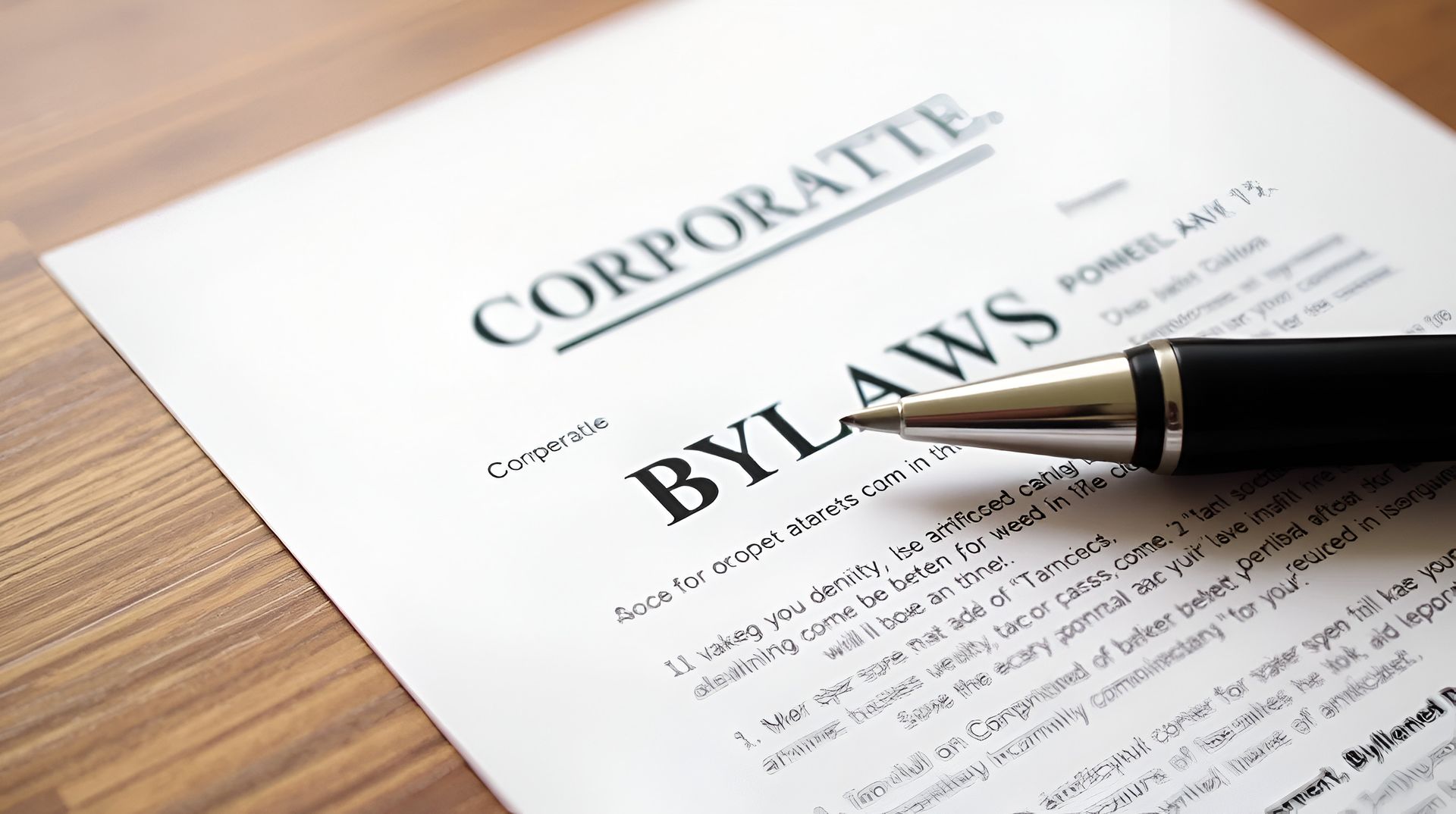Blog

Vague, outdated, or poorly tailored bylaws can create conflict rather than clarity. In Georgia, disputes over voting rights, officer authority, or amendment procedures often escalate, dragging organizations into court and distracting from their mission.
While these five common bylaw mistakes are not the only potential problems, they illustrate issues nonprofits should seek to avoid when drafting or modifying their bylaws.
Mistake 1: Vague or Conflicting Voting Rules
Few issues spark legal disputes faster than questions about who can vote and how much weight each vote carries. Ambiguity about quorum, majority versus supermajority requirements, or whether members or directors have final authority can leave a board paralyzed.
For example, a board may split into two factions, each claiming the authority to elect new officers because the bylaws were unclear about quorum or notice requirements. Georgia’s nonprofit statute will step in to fill gaps, but the default rules may not reflect what the nonprofit intended. Relying on those defaults can embolden one side of a dispute.
Clear, consistent voting provisions are essential for preventing these conflicts.
Mistake 2: Outdated or Inflexible Provisions
Bylaws often go untouched after formation, even as the nonprofit grows or shrinks. Over time, those outdated rules can make normal governance nearly impossible.
In a situation where a quorum was initially established when the board had 15 members, but membership has since dropped to eight, the organization may find itself paralyzed because it cannot meet quorum to conduct any business.
Inflexible amendment clauses can also create deadlocks, making it nearly impossible to fix problems once they arise. Outdated provisions slow decision-making and, in extreme cases, block it entirely.
Mistake 3: Overlapping or Unclear Officer Authority
Another frequent source of disputes comes from confusion about who is authorized to act on behalf of the nonprofit. When officer duties overlap or are too vague, internal power struggles and external liability follow.
Consider a scenario where both the president and treasurer believe they have authority to sign contracts. If they each sign different agreements with outside vendors, the nonprofit could end up in costly litigation. Clear delineation of roles, including who can sign checks, enter contracts, or represent the nonprofit externally, reduces the risk of conflicting actions and strengthens accountability.
Mistake 4: Boilerplate Language Not Tailored to Georgia Law
Although Georgia doesn’t have any outlandish nonprofit requirements, generic bylaws pulled from a national template can still conflict with Georgia’s nonprofit code or fail to address state-specific requirements. This can create blind spots that only surface during disputes.
For example, some boilerplate bylaws assume only the board votes on bylaw changes, while Georgia law gives amendment authority to members if the nonprofit has them, unless the bylaws clearly assign that power elsewhere. Similarly, out-of-the-box bylaws rarely mention Georgia’s charitable solicitation registration requirement, leaving organizations vulnerable during audits or annual filings.
Mistake 5: Ignoring Conflict of Interest or Indemnification Provisions
Bylaws that skip over conflict of interest requirements or indemnification protections expose the nonprofit to both legal and reputational harm.
Without conflict of interest language, board members may enter into questionable arrangements that erode donor trust and invite IRS scrutiny. Without indemnification clauses, qualified candidates may decline board service, leaving the nonprofit with fewer experienced leaders. These provisions often come under the microscope during disputes, which is precisely when it’s too late to fix them.
How to Prevent Bylaw Disputes
Preventing these problems starts with treating bylaws as a living document, not a formality that is drafted once at founding and then filed away. Nonprofits in Atlanta should:
- Conduct a bylaw audit every few years or after major organizational changes.
- Involve nonprofit general counsel to ensure alignment with Georgia law.
- Train board members on what the bylaws say and how they should be applied.
- Keep amendment procedures flexible enough to adapt but structured enough to prevent abuse.
Strong bylaws don’t eliminate conflict, but they reduce the chances of disputes escalating into lawsuits that drain time, money, and focus from the mission.
Work With a Nonprofit Attorney to Strengthen Your Bylaws
Outdated or poorly drafted bylaws can turn small disagreements into costly legal battles. Atlanta nonprofit attorney Cameron Hawkins can help your organization review, update, and enforce bylaws to reduce the risk of disputes that could put your organization at risk or compromise your mission.
Request a consultation today by calling 678-921-4225.











